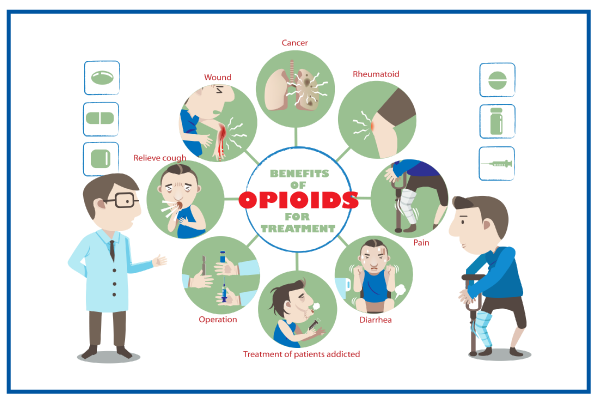What Are Opioids And Why Are They Dangerous?
Opioids cause the release of endorphins, the feel-good neurotransmitters in the brain. Endorphins reduce the perception of pain while increasing feelings of pleasure, resulting in a short but powerful sense of well-being.When an opioid dose wears off, people may crave for those wonderful feelings again as quickly as possible. This is the first step on the road to probable addiction.
Opioids are also sometimes prescribed for chronic coughing and diarrhoea. Because opioids have a significant potential for addiction, it is critical to discuss the risks and benefits with your clinician before beginning treatment. Let’s have complete knowledge about opioids!
What are opioids?
Opioids, often known as narcotics, are a class of medications that interact with nerve cells to relieve pain. These medications contain pain relieving properties and they are generally prescribed by doctors to treat moderate to severe pain.
However, opioids can lead to addiction because they not only numb pain but also cause euphoria (feeling high).Therefore, because of this, healthcare providers have modified the prescribing practices to minimise the length and dosage of opioids in order to prevent addiction.

What are the types of opioids?
There are more than a hundred different types of prescription opioids. Some of the most commonly prescribed opioids are:
- Oxymorphone
- Hydrocodone
- Morphine
- Oxycodone
- Hydromorphone
- Codeine
- Fentanyl
- Methadone
- Tapentadol
How do opioid medications work?
Opioid pain-relieving medications work by interacting with opioid receptors on the nerve cells present in the brain and the body. The brain cells release signals that block pain perception and increase pleasure when opioid drugs pass through the blood and connect to opioid receptors in the brain cells.
What are the side effects of opioids?
The common side effects of opioids include:
- Drowsiness
- Constipation
- Respiratory problem
- Vomiting and nausea
- Physical dependence
- Dizziness
Here are some of the uncommon side effects of opioids:
- Extreme response to pain (hyperalgesia)
- Muscle stiffness
- Immune system and hormonal dysfunction
- Itchy skin (pruritus)
- Quick, involuntary muscle jerks (myoclonus)
- Dry mouth (xerostomia)
- Arrhythmia
When are opioid medications dangerous?
Opioid medications can be harmful because of the same properties that make them efficient at managing pain. This medication may make you feel sleepy when taken at lower dosages, but when taken in higher doses, they can cause fatal breathing and heart rate slowdowns. Moreover, the pleasurable effects of opioids may cause you to crave more of those effects, which might result in addiction.
You can lower the chance of dangerous side effects by carefully following the doctor's instructions and taking the prescription exactly as directed. Make sure the doctor is aware of any other medications or supplements you are using.
There is a high possibility to experience withdrawal symptoms when the opioid dose is lowered quickly or if it is stopped suddenly. If you are planning to reduce the dose, do it with help from a doctor.
Can opioids cause addiction? And, if yes, to whom?
Anyone who uses opioids is at risk of becoming addicted. The personal history and the period of time you use opioids play an important role, but it's impossible to predict who will become dependent on it and abuse these medicines. These medications, whether legal or illegal, stolen or shared, are responsible for the majority of overdose deaths.
Addiction is a condition in which you can't live without something that was once pleasurable. Doctors define drug addiction as an excessive craving for a substance, out-of-control and compulsive drug usage, and continued drug use despite undesirable results. Opioids are highly addictive because they activate the brain's powerful reward systems.
When taken as prescribed by the doctor, opioid drugs can help control acute pain, such as pain after a surgical procedure. However, there are risks when the drugs are administered inappropriately.

